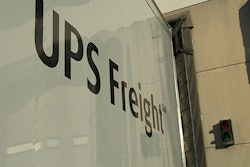
Sometimes it’s good to go back to basics of equipment leasing to refresh your understanding, gain further knowledge or simply test a commonly held belief or misbelief that one method is more expensive than the other.
Leasing is a common financial method for acquiring assets versus purchasing them. There are generally two types of asset leases: operating leases and capital leases.
A capital lease, or finance lease, is treated as an asset on a company’s balance sheet. An operating lease is mainly treated as an expense on a company’s income statement, except that recent accounting regulations now require a company to disclose a portion of the lease on its balance sheet as a “right-of-use” asset. A full-service lease, or fair market value (FMV) lease, is a common type of operating lease.
Each type, of course, offers different benefits to lessees for financing and tax reporting purposes and should be a consideration in your asset acquisition strategy. In addition to financial considerations, how do you determine which type of lease is right for your operation?
Truck leasing companies offer a variety of operating lease solutions, bundling in various life-cycle administrative and operating services that deliver meaningful value to a lessee – the most complete product often referred to as a full-service lease (FSL).
Here are some company scenarios where a full-service lease makes good business sense:
- Fleets and fleet management are under-represented or trucking is not a core competency of the business
- Fleets without a maintenance department or central oversight across the country to handle maintenance
- Fleets that require a high degree of maintenance due to a challenging service environment (e.g., direct store delivery, food service, building material, waste management, beverage delivery, final-mile distribution, etc).
There are many other reasons why a full-service lease makes sense. For companies with adequate creditworthiness, a typical FSL requires no initial down payment and provides the business owner with a predictable budget over a long period of time. At the end of the lease, the lessor is responsible for the fair market value and disposition of the vehicle.
With full service leasing you also receive professional, experiential guidance with vehicle spec’ing, customization and procurement, as well as access to the latest trucking technology. Another benefit, and the backbone of effective fleet management, is a scheduled preventive maintenance program tailored to the vehicle’s application and duty cycle, along with corrective maintenance and repair services as well as 24/7 emergency breakdown support. You’re even covered with replacement vehicles if needed and can rent additional vehicles at preferred pricing to support peaks in demand or seasonal needs.
The headaches of licensing, permitting, vehicle use tax and sales tax are shifted from you to the lessor along with administration and management of all the above functions.
In a variety of applications – and for a variety of reasons – full-service leasing might be the best way for your fleet to acquire its next asset.
Joe Gallick is Senior Vice President of Sales, NationaLease is an experienced supply chain executive and spokesperson in the logistics provider industry.










